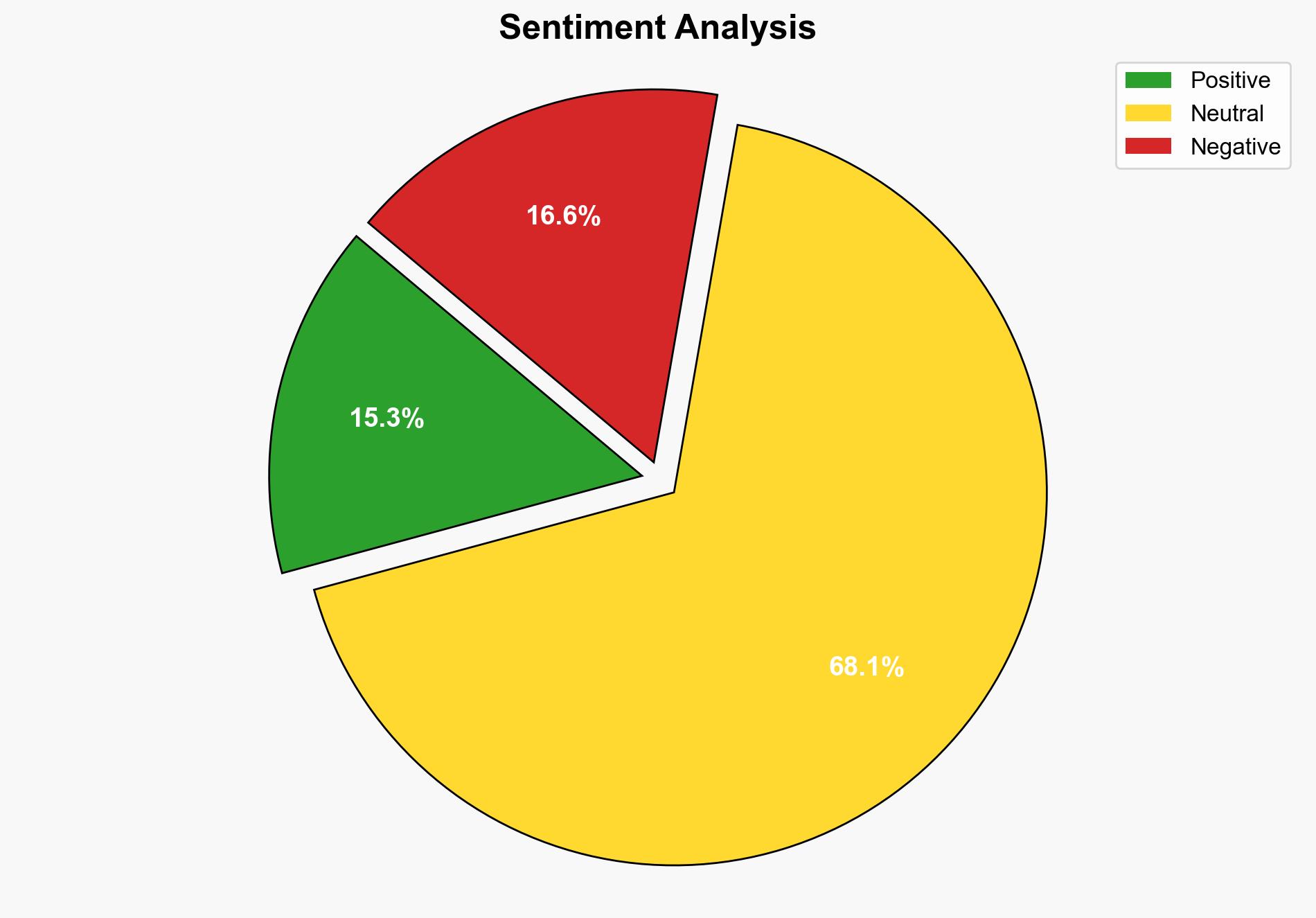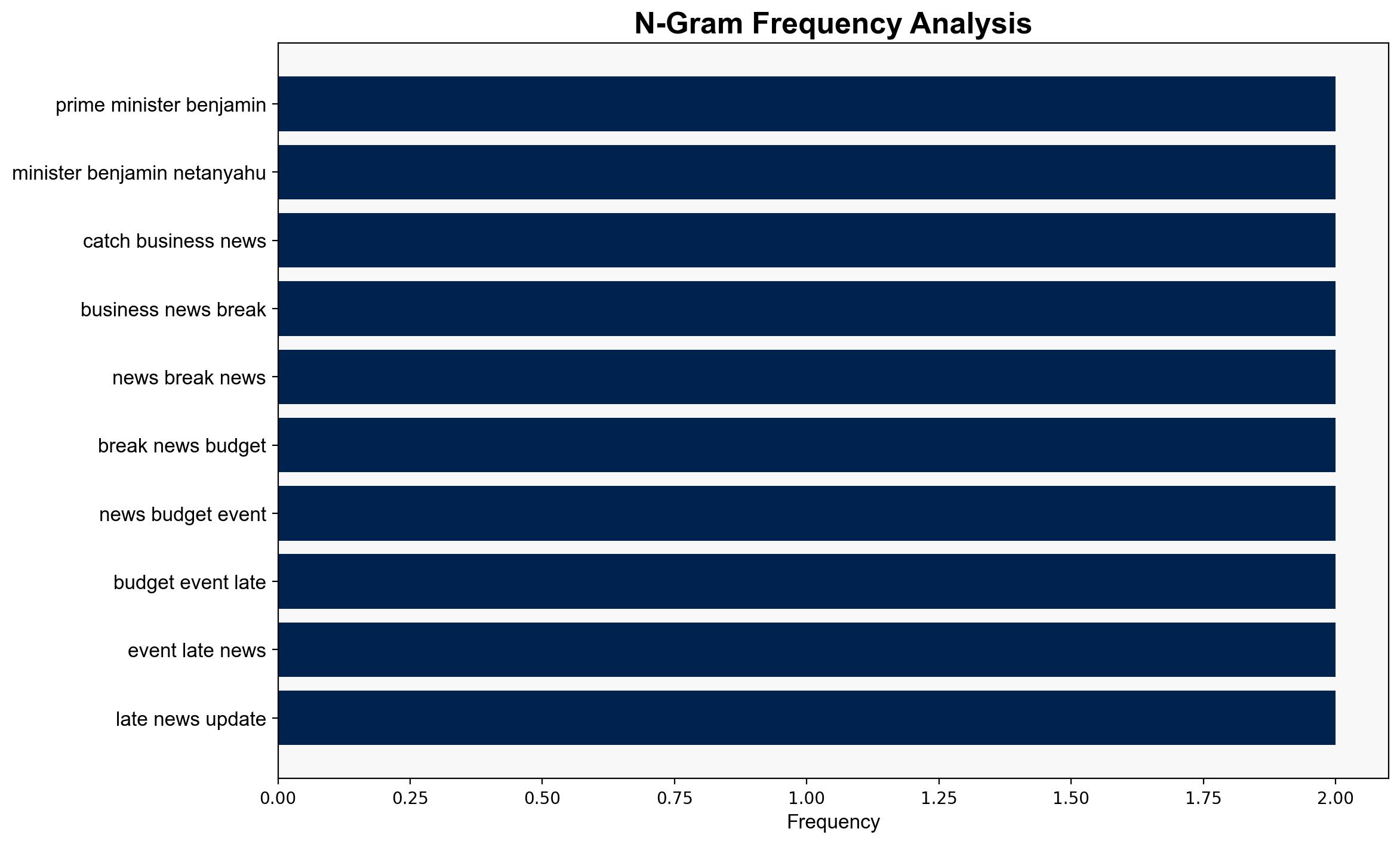Qatar bombing tests the limits of the Trump-Netanyahu alliance – The Times of India
Published on: 2025-09-11
Intelligence Report: Qatar bombing tests the limits of the Trump-Netanyahu alliance – The Times of India
1. BLUF (Bottom Line Up Front)
The strategic judgment is that the bombing in Qatar, targeting a Hamas leader, has strained the Trump-Netanyahu alliance but is unlikely to cause a fundamental shift in U.S.-Israel relations. The most supported hypothesis is that the alliance will endure despite tactical disagreements. Confidence level: Moderate. Recommended action: Monitor developments for signs of further strain and prepare diplomatic strategies to manage potential fallout.
2. Competing Hypotheses
1. **Hypothesis A**: The bombing represents a tactical disagreement that will not significantly alter the Trump-Netanyahu alliance. This is supported by historical precedence of strong U.S.-Israel ties and Trump’s public support for Israel’s strategic goals.
2. **Hypothesis B**: The bombing could lead to a significant rupture in the alliance, especially if it continues to provoke international condemnation and complicates U.S. diplomatic efforts in the region. This is supported by the lack of prior warning to Washington and potential backlash from Arab nations.
3. Key Assumptions and Red Flags
– **Assumptions**: Hypothesis A assumes that the strategic interests of the U.S. and Israel will outweigh tactical disagreements. Hypothesis B assumes that international backlash could outweigh the strategic benefits of the alliance.
– **Red Flags**: The absence of a clear communication channel between the U.S. and Israel regarding the attack could indicate deeper issues. The lack of a coordinated response to the backlash may also be a red flag.
– **Blind Spots**: Potential internal political pressures within Israel and the U.S. that could influence decision-making are not fully explored.
4. Implications and Strategic Risks
– **Geopolitical Risks**: The bombing could exacerbate tensions between Israel and Arab nations, potentially destabilizing the region further.
– **Diplomatic Risks**: Continued unilateral actions by Israel might strain U.S. relations with Gulf states, complicating broader Middle East policy objectives.
– **Escalation Scenarios**: If the alliance weakens, it could embolden adversaries like Iran or Hamas, leading to increased regional conflict.
5. Recommendations and Outlook
- Engage in diplomatic dialogues with both Israel and Qatar to de-escalate tensions and clarify U.S. positions.
- Scenario-based projections:
- **Best Case**: The alliance remains strong, and diplomatic efforts mitigate regional tensions.
- **Worst Case**: The alliance deteriorates, leading to increased regional instability and weakened U.S. influence.
- **Most Likely**: The alliance endures with periodic tactical disagreements, requiring ongoing diplomatic management.
6. Key Individuals and Entities
– Donald Trump
– Benjamin Netanyahu
– Aaron David Miller
– Dennis Ross
– Michael Oren
7. Thematic Tags
national security threats, cybersecurity, counter-terrorism, regional focus




